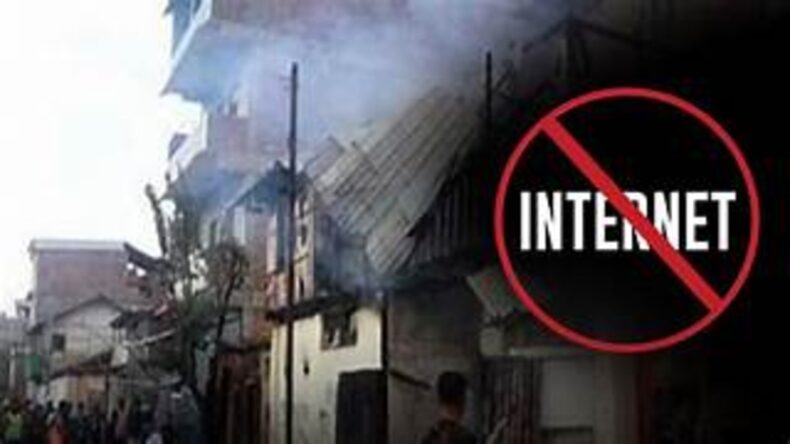In recent years, the spread of fake news and misinformation online has become a major concern for governments around the world. False information can provoke violence, cause panic and undermine public confidence in institutions. In response to violent incidents and social unrest, some regions, such as Manipur, India, have resorted to internet bans to stop the spread of fake news. However, the effectiveness of such a ban remains controversial, raising questions about its impact on freedom of expression and communication and the fight against misinformation generally.
Internet shutdowns in Manipur and other parts of India have been the subject of controversy and criticism. Civil rights groups, activists and citizens have expressed concern about the impact of these bans on freedom of expression, access to information and the economy. Critics say the internet ban unfairly hurts innocent civilians, interferes with essential services, and impedes economic activity in the affected areas.

In recent years, the negative effects of internet shutdowns have become increasingly recognized. The United Nations and several international organizations have condemned the practice, highlighting that restricting access to the internet violates human rights, including freedom of expression and the right to access information. Indian judicial authorities are also paying attention to the issue. In 2020, the Supreme Court of India ruled that Internet shutdowns are subject to judicial review, requiring authorities to justify the necessity and proportionality of such measures. The court ruled that an indefinite Internet ban is unacceptable and imposed certain restrictions on the use of Internet disconnection.
Despite this situation, Internet outages continue in India, including Manipur, and concerns about their impact on human rights, democracy and economic activity persist. Balancing the need to uphold law and order with respect for fundamental rights remains a complex challenge for governments and policy makers.
Uttar Pradesh Police and Cybercrime Commissioner Professor Triveni Singh expressed confidence in the government’s move to ban the internet to prevent “riots” and violence, while cybercrime adviser Mukesh Chowdhury said the internet, He said a ban was not enough and government reform was needed. Information technology law is needed to achieve long-term peace.
“Our priority is to manage law and order. Internet bans are a preventative measure,” Singh said. Lives are more important,” he said.
On the other hand, Chowdhury said, “Everyone should have the right to use the internet. [Banning] may restrict the distribution of certain posts, videos, images and audio, but not by much.”
The intent behind Internet bans may be to mitigate potential harm, but often has serious consequences. One of the main concerns is the violation of individual rights to freedom of expression and access to information. The Internet has become an essential tool for communication, education and economic activity, and denying people access to the Internet can lead to restrictions on their fundamental rights.
Internet bans can have serious economic consequences. Businesses that rely on online platforms to do business may suffer financial losses, and entrepreneurs may face significant challenges in accessing markets and communicating with customers. In the digital age, internet disruptions can impede critical services, disrupt supply chains and stunt economic growth.
Another important aspect is that fake news and misinformation don’t just spread on the internet. In some cases, misinformation can be spread through traditional media channels, word of mouth, and other means. Banning internet access alone may not be enough to address the root cause of fake news, and it may rely on evasive methods and other platforms to spread.
While increased law enforcement and legal action against those who intentionally spread fake news could act as a deterrent. Enforcing such laws in the digital realm is difficult, but it is important to strike a balance between protecting free expression and holding bad actors accountable for their actions. Governments also need to prioritize dialogue with the public and address underlying social and economic problems that may contribute to the spread of misinformation and violence. Engaging with communities, promoting inclusive governance, and creating an environment in which citizens can express their concerns constructively can reduce tensions and the appeal of fake news.
Internet bans may be a knee-jerk reaction to curb the spread of fake news during periods of unrest, but they come with substantial drawbacks. Instead of solely relying on such measures, a comprehensive approach involving public awareness, media literacy, fact-checking initiatives, responsible platform management, and legal measures is essential to tackle the root causes of misinformation effectively. Balancing the need for maintaining law and order with upholding fundamental rights and freedoms is crucial in fostering a society where accurate information prevails over fake news.
The state of Manipur has been experiencing internet ban for two months. However, the state government has lifted ban on broadband internet. Mobile internet still remains suspended.












